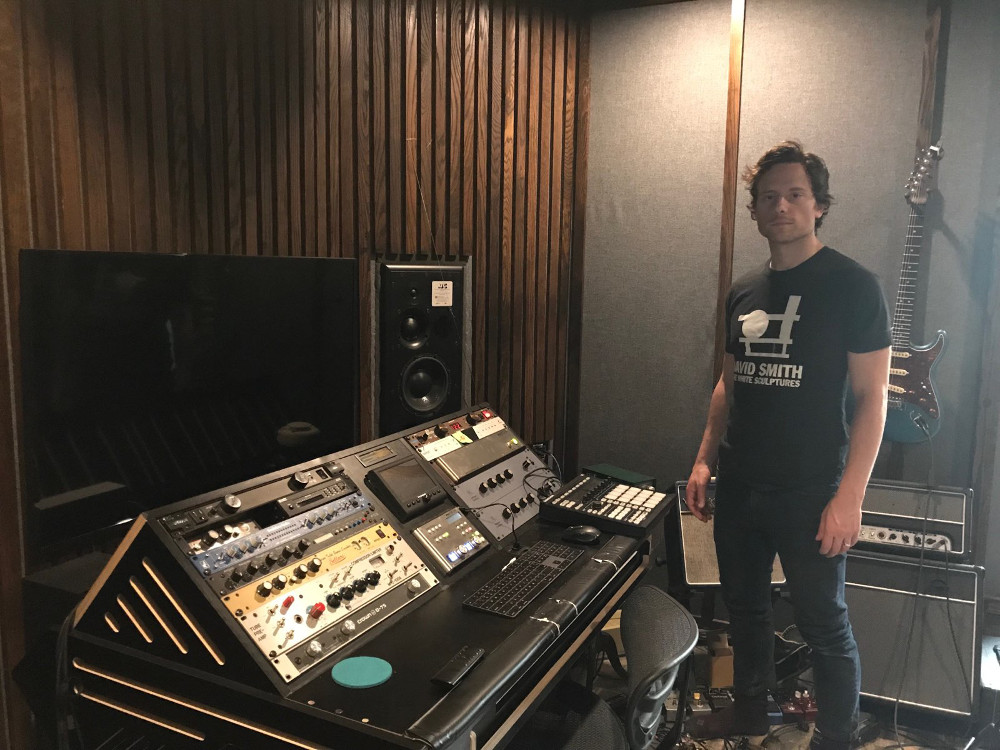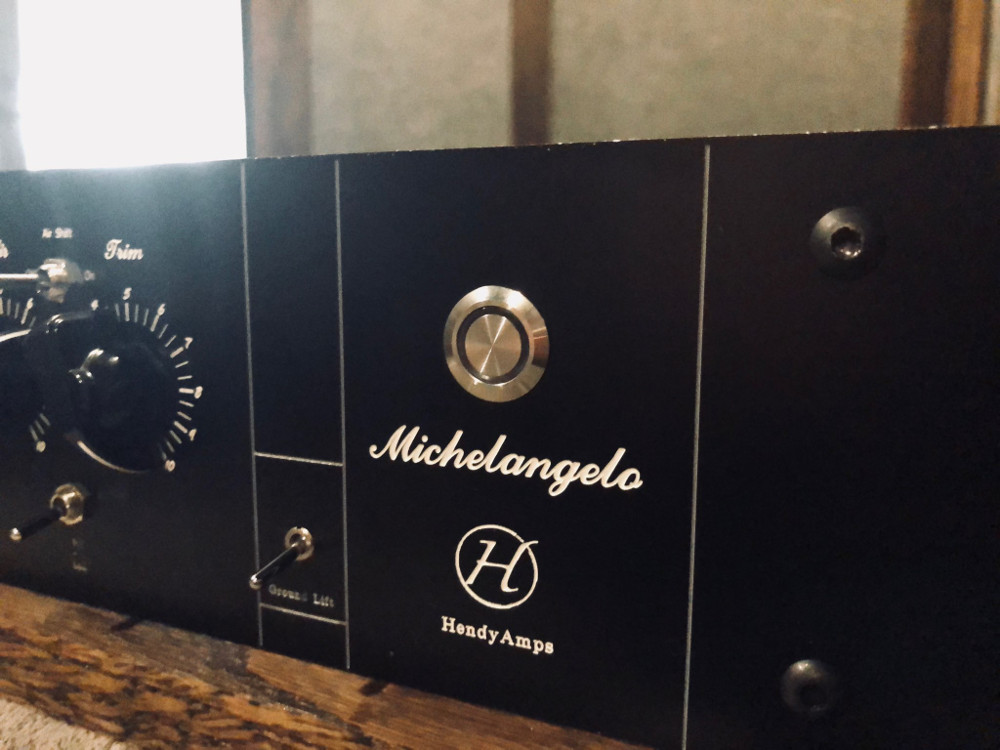Avoid New Gear Regret: A Successful Buying Guide from The Audio Mechanic
So here we are again… it’s gear-buying time again.
Will you save yourself from buying stuff you don’t need just because it’s nice and shiny and on sale? How do you evaluate gear to know that it’s going to bring you value over the years? What types of things do you think about when you’re buying gear?
These are major decisions for anyone involved in audio, and for most of us they’re not arrived at lightly — at least they shouldn’t be. I’m going to talk here about the exhaustive process that I put myself through to justify an audio purchase… but I’d also like to hear what you do, and perhaps in the comments you can share some of those ideas as well.
Evaluate Value
First and foremost, I’m looking for value.
That value may come from a great deal, or it just might stem from the fact that a new piece will take the place of two to three units I currently own that still have value on the secondhand market. Getting rid of gear on the verge of obsolesces and replacing it with something that will be useful for years to come should always be in your mind. As one mentor told me, “If you’ve got good gear that your not using, sell it!”
There are a few times during the calendar year when retailers, specifically plugin developers, offer their best deals of the year. Personally, I try to only buy my plugins during those periods. Unless it’s something I truly need today for a session that I can’t get around, I’ll maximize my savings by purchasing the digital products I need during the biggest sales of the year.
For all my other purchases, this is what I do:
It starts with a need. I try not to buy gear just to buy gear. I try to only buy gear that will solve a current problem that I have.
So with that in mind, I begin with research. I’ll comb the Internet looking for anecdotes, audio examples and obviously forum discussions to decide whether or not I really need a certain piece — or that I even have the problem that I think I do — answering the tough question, “Do I really need this?”
I love to play guitar. I love guitar pedals. But no one hires me to play guitar for them. So as much as I would love to indulge in some of the more expensive and great-sounding guitar pedals, they’re mostly toys. However, If I’m about to start a project where I’ll be recording a lot of guitar and I know these pedals will make those tracks sound better, then there’s more value there.
Even in that situation I can’t see myself breaking my bank on pedals. However, if it’s something that’s going to make me legitimately mix faster, I would definitely spend my top dollar and perhaps look to see what else I could sell to make that purchase happen. Obviously, being able to do more work in less time is the goal.
Crowdsourcing Criteria
Once I’ve determined that I really do need a certain piece, I’ll go over to the forums and look at what users are saying.
This is where it can get tricky.
Over the years I have definitely seen some pieces go viral in forum threads amongst a population of engineers that maybe don’t have the most experience. Maybe the piece of gear is great but it almost seems it’s more about becoming part of a club of owners. Breathless post after post of people who swear this is the best unit ever without having any experience with the unit, or something similar. People will chime in just to let others know that they’ve ordered it so that they can quickly be seen as part of the club.
I’m not saying there’s anything wrong with this but sometimes it may belie the actual value of the product. Don’t even get me started on the typical, “I-haven’t-had-any-experience-with-the-product-you’re-asking-about-but_I_really_like_the_product_I_own”, type of post. Don’t get sucked in on the hype. I recently was reading a poster rave about his compressor in an older thread only to glance down and see that’s he got it for sale in the classifieds. What happened? Figure it out so you don’t end up like that person.
Sonic Research
After I get a good feeling, and probably a longer item list of possible pieces, I’ll hit YouTube for audio examples.
Audio examples are a must for me these days. I can’t justify buying anything of significant value without having heard it first. I need to hear what something is going to sound like. I want to hear before-and-afters, as many as I can find and I don’t want just post-processed clips: I want to hear stuff where the context makes it easy to discern what’s changed. Somebody has to be flipping a bypass that’s level matched in a video for me to think it’s worthwhile.
I know some people will chime in here about how listening to things on YouTube is not optimal. But you can get a real sense for a piece of gear switched in and out or get great context when it’s in a shootout. If you have experience with unit A and it’s been compared to the unit you want to purchase and you hear that it sounds darker or thicker, that has value. It doesn’t mean that it has to be the only piece of information that you use, but it definitely can be helpful data in building an argument for or against the purchase.
Often, people will also add downloadable files to their YouTube clips so that you can put them into your DAW, adjust to taste, and make your own decisions.
I want to briefly touch on the idea of crowd source audio gear comparison files: On a few popular forums there are some downloadable sets of audio examples, typically of very expensive compressors or EQ’s, using the same mix file meant to compare the “box tone” of the units. These can be A LOT of fun. However, these is no substitute for hearing a unit in your own studio or your own rig. Between different converters, operator error, and who knows what, you may attribute your opinion to something that is not material to the unit’s actual performance.
Boots on the Ground
If you’re buying expensive gear, you really must figure out a way to listen in person with limited variables — I just cannot stress that enough. Check your local retailers. You can try to seek out a friend or colleague who has the unit. Maybe they’ll let you come over, hang out and listen to it, or maybe they’ll run some audio through it and send you a file.
Either way, it’s a great opportunity to reconnect with old friends, meet new people and learn from their experiences. A year ago when I was searching for new monitors, I wound up making a bunch of new friends at studios around Brooklyn, people who were kind enough to let me come and listen to their monitors. Not only was it informative, but it was super enjoyable.
There are also multiple audio retailers which will allow you to return an item within 30 days if you do not like it, usually having to pay return shipping at the least.
Straight to the Source
But what if those distributors don’t stock your potential greatest new acquisition and you don’t know anyone that owns it? There’s a lot of esoteric gear that might be just the thing that you need, that is only sold direct.
At this point, I’ll contact the manufacturer, especially if it’s an expensive piece. I’ll discuss what I’m looking for, and ask them for their perspective if they think I’m on the right track. Obviously, their job is to sell me some gear, but you’d be surprised how many manufacturers are candid about the limitations of their product.
Most quality manufacturers, especially smalltime people who are building units by hand, want the community to feel good about their purchases and want their products to be faithfully represented out in the field. They may loan a demo unit to you or be able to provide you with more audio examples. Also, I find it fun to speak with some of these manufacturers …often there are mutual connections that may prove rewarding and/or useful in the future.
Used and New
When I think I might be ready to buy I like to hit the secondhand market. I will always try to get something used before I buy it new, unless there is some obvious inherent value to buying something new. One particular guitar pick-up manufacturer will give you a lifetime warranty if you buy from them but if you buy secondhand they will offer no such warranty. For me, that has a lot of value. But for the most part I want to buy something with the depreciation already baked into the cost somewhat so if in the future I no longer need the piece, my losses will be mitigated.
Also, if you see your particular item on Reverb being sold by 41 people you might think to yourself, “Wow, that’s a large population of people who don’t like that item or no longer find it needed.” Maybe it doesn’t sound good or maybe there is a better option in that market. Also, becoming familiar with prices helps you get a sense of what to expect the monetary return of a used item might be.
I have been fortunate that I’ve made some smart purchases of quality gear at good prices and when they no longer served me I’ve been able to get back almost all that I initially paid for them. This has allowed me to buy new gear that now fits my paradigm with less upfront investment.
Now Press “Pause”
Lastly, when I found the item that I want and I’m ready to buy…I wait.
I try not to buy anything on impulse ever even if I feel like I’ve researched something well and I know that I want it. I’ll still make myself wait a few days. Sometimes just the excitement of buying a new piece can cloud my judgment. And there’s nothing worse than feeling like you spent money that shouldn’t have been spent.
Most of all, if you’re on a budget, be patient. Another unit may pop up on Reverb or wherever. Or maybe the thing you thought you couldn’t live without you just really don’t need. I don’t mind spending money, but I hate wasting it. Good luck!
- Jason Finkel a.k.a. The Audio Mechanic is a producer, mixer and engineer, for artists including Cut Worms, Secret Weapons, Hundred Waters and Charlie Hunter. Visit him at http://www.jasonfinkel.com.
Please note: When you buy products through links on this page, we may earn an affiliate commission.








